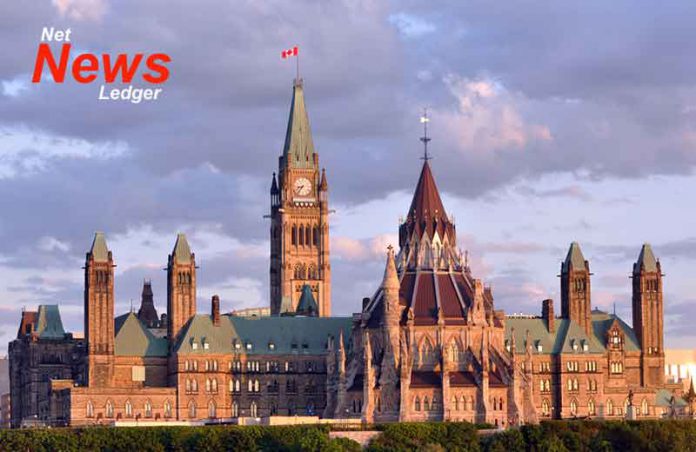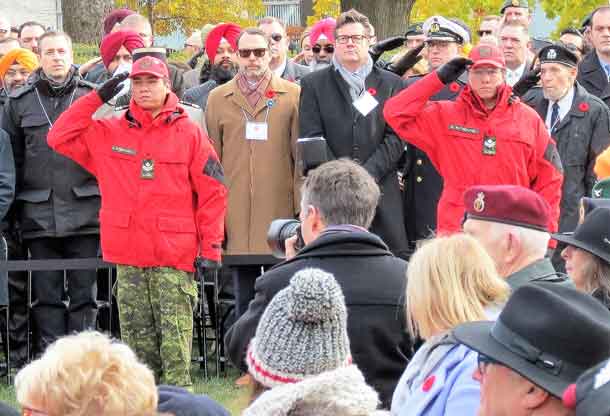by Niigaan Sinclair
WINNIPEG – OPINION – In November 2005, in the waning days of a Paul Martin-led Liberal federal government, the Kelowna Accord was forged.
It was the result of an unprecedented 18-month consultative process between the federal government, provincial and territorial governments and all five major national Indigenous organizations.
The result was a $5-billion commitment over five years, aimed at addressing massive inequities in Indigenous health, education, housing and infrastructure, economic opportunities, governance and the relationship between the federal government and Indigenous nations. Just to close the gap between Indigenous Peoples and Canadians.
Four days after forging this landmark agreement, Parliament was dissolved, with Martin eventually losing the next election to Stephen Harper and the Conservatives.
Harper’s first order of business: scrap the Kelowna Accord.
Critics have pointed out faults in the accord — no provisions to address child welfare, for example — but it was an egregious answer to the egregious situation of overwhelming poverty, unsafe living conditions and porous infrastructure in Indigenous communities.
Zoom ahead to the federal budget of 2019, which offers $4.5 billion in “new” money for Indigenous health, education and dealing with emergency situations such as tainted water.
Again, this is just to bring Indigenous Peoples to the same standard of living all Canadians enjoy.
Not beyond, just the same. It’s 2005 all over again.
Imagine for a moment how much cheaper it would be if Indigenous Peoples weren’t a passing political whim for whichever government is in office.
This year’s budgetary commitments, according to the Liberals, will bring federal government spending on “Indigenous affairs” to $17 billion by 2021-22.
Of that, around half goes to administer Indigenous Peoples via two departments (Crown-Indigenous Relations and Indigenous Services) and pay the salaries of nearly 5,000 employees. Again, 50 cents of every dollar for Indigenous affairs goes to bureaucrats, consultants and contractors — not Indigenous Peoples themselves.
So, what we’re really talking about is close to the budget for New Brunswick ($9 billion-plus). There are five times more Indigenous Peoples in Canada than the population of New Brunswick, but I digress.
There are several crucial elements in this year’s budget that will make real-life differences.
The biggest swath of funding ($1.3 billion over three years) is allocated to serve Jordan’s Principle, a program that ensures First Nations children receive services such as speech therapy, medical supports and equipment and mental-health services.
There are other important investments, such as more than $800 million to First Nations, Métis and Inuit education, and $700 million to support education initiatives in northern communities.
There is also $333.7 million over five years to support the proposed Indigenous Languages Act. (However, this must fund a new commissioner and office, so much of this money may go to bureaucracy.)
There are smaller, important commitments worth mentioning, such as $30 million to recognize the contribution of Métis veterans of the Second World War; $33.8 million to develop an online registry of residential school cemeteries so gravesites are respected; and $60 million over five years for urban Aboriginal programs, including money for Friendship Centres and community programs.
All of these will have an effect in Manitoba — and virtually all would cost much less if Canada had previously committed to its responsibilities to Indigenous Peoples.
The word reconciliation appears an unprecedented 85 times in the 2019 budget.
Also unprecedented: Tory Leader Andrew Scheer and his party members decried the Liberals for not allowing MP Jody Wilson-Raybould further testimony on the SNC-Lavalin affair.
The Conservatives demanded Wilson-Raybould, the former justice minister, be allowed to speak publicly — even drowning out Finance Minister Bill Morneau while he was trying to announce the budget.
Conservative MPs screamed out “Let her speak her truth!” and “We want to hear Jody!” as they slammed their desks.
Let me say that again: the Conservative Party of Canada — the same one that cancelled the Kelowna Accord on a whim — tried to stop the proceedings of the Canadian government to hear from an Indigenous person.
That’s totally unprecedented.
Unfortunately, what’s the same is how Indigenous Peoples get used as pawns by political parties.
That much hasn’t changed.
 Niigaan Sinclair
Niigaan Sinclair
Originally appeared in the Winnipeg Free Press on March 20, 2019. Republished with the permission of the author







